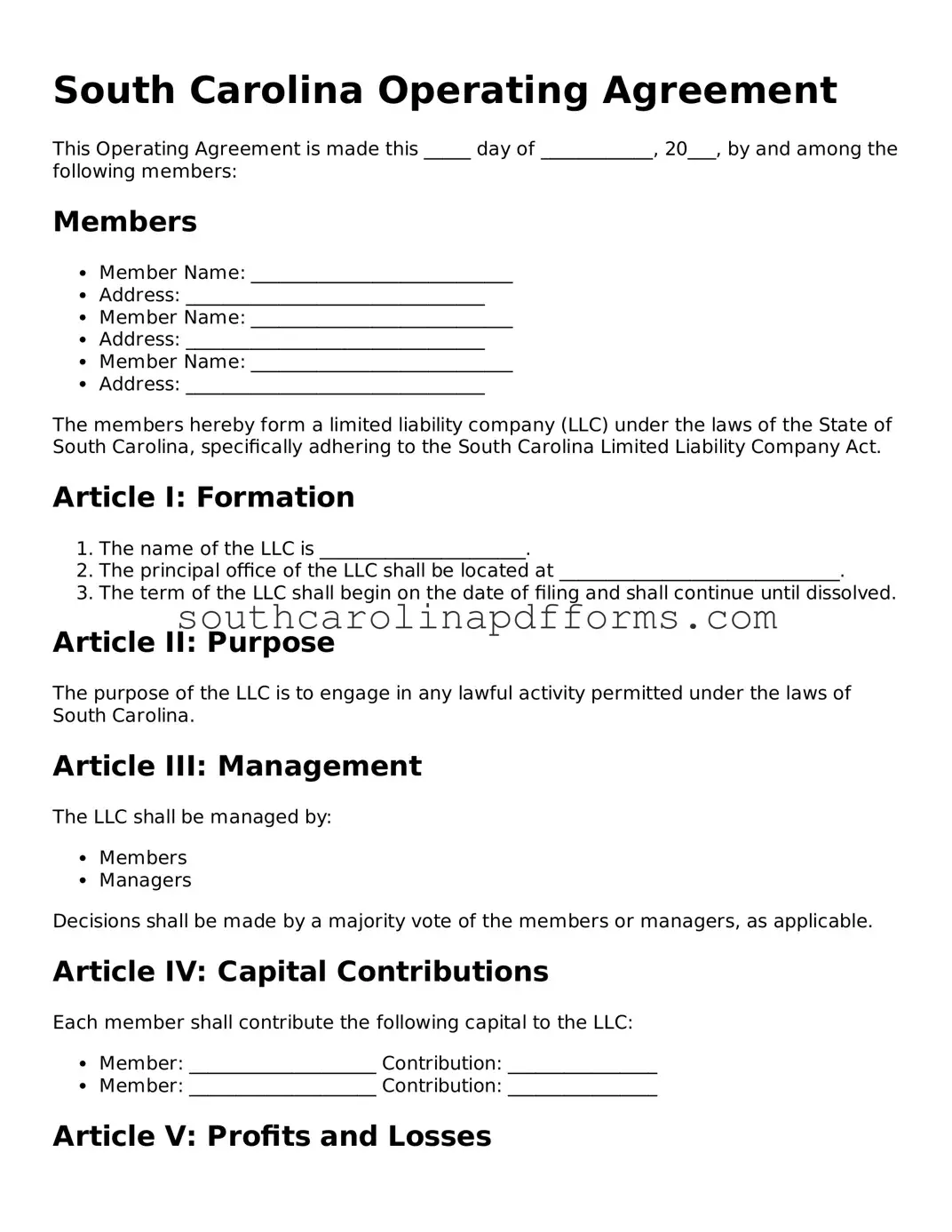Attorney-Approved South Carolina Operating Agreement Document
The South Carolina Operating Agreement form is a crucial document for Limited Liability Companies (LLCs) that outlines the management structure and operating procedures of the business. This form serves to protect the interests of the members and clarify their rights and responsibilities. By establishing clear guidelines, it helps to prevent disputes and ensures smooth operations within the company.
Access Operating Agreement Here
